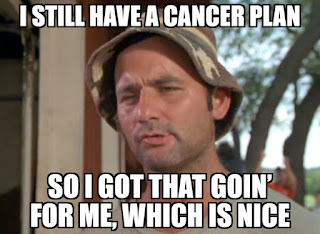Often on this blog I discuss ways to make sure your family's financial future is secure by having the proper life and disability products in place. But what about your business?
For many business owners and entrepreneurs, life and disability insurance are just as important. Their business is the source of their income, and possibly the incomes of other partners and employees. Making sure that the business can stay afloat is of utmost importance not just to the owner, but to customers and vendors as well.
There are several insurance products you may want to consider if you are a business owner.
1. Keyperson life insurance. Do you have an employee who has a special skill that brings in a good percentage of your business receipts? A specialized talent may be hard to replace. With that in mind, you may want to consider insuring that key employee.
2. Life insurance to fund a buy-sell agreement. A buy-sell agreement is a legal document that basically states that if one of the partners should die, the remaining partner(s) can buy out their stake in the business. Sometimes the buy-sell agreement is part of the original paperwork starting the business.
For instance, let's say Bob dies and his wife, Mary, inherits his interest in the business. Mary may not really want to be an owner in the business, and she may be willing to sell her shares to the remaining owners.
At the same time, the remaining owners may not be interested in having Mary as their new partner. And if Bob's role in the business was highly specialized, Mary may not be able to fill his shoes. The life insurance proceeds would go to the partners who could pay Mary for her shares.
As you can see, for all parties involved, a buy-sell agreement is a good idea, but it will need to be funded when one of the partners dies. A life insurance policy can fill that need.
3. Life insurance to secure loans. Many entrepreneurs starting out may need to get a loan for equipment, office space and other expenses. Lenders may require a life insurance policy to secure those loans.
A few years ago I met a woman whose husband worked in the corporate world and decided to go out on his own. He borrowed heavily to start his own business and the wife implored him to get life insurance when she realized how much debt he was incurring. He said he would but never bought a policy.
Sadly, he died while cutting down trees on their property when a log fell on him. She was stuck with the debt she couldn't pay because he didn't purchase the policy she kept asking him to get.
4. Disability insurance for a disability buy-sell agreement. Very similar to the example above, but instead of a partner passing away, the partner becomes permanently disabled.
5. Disability overhead expense policy. I always urge my business owner clients to buy two disability policies. One is to replace their personal income if they get sick or hurt and are unable to work. That policy will help pay their personal bills. The other policy is to pay for the business's bills should the owner become disabled.
These policies are pretty affordable because they usually pay out for a maximum of only two years, but what is most important is that the policy gives the business owner time to make a decide what to do. That two year window gives ample time to find out if the business owner will recover or not, whether or not to sell the business or shut it down altogether. In the meantime, payroll and other bill like utilities can still be paid.
These are just a few reasons why you may want to consider a life insurance policy for your business. If you have questions, please drop us a note. And in the meantime, please stay healthy!
Chris Castanes is the president of Surf Financial Brokers, helping people find affordable life, disability, long term care, cancer, accident and other insurance coverages in North Carolina, South Carolina, Virginia, Tennessee and Georgia. He's also is a professional speaker helping sales people be more productive and efficient and has spoken to professional and civic organizations throughout the Southeast. And please subscribe to this blog!




